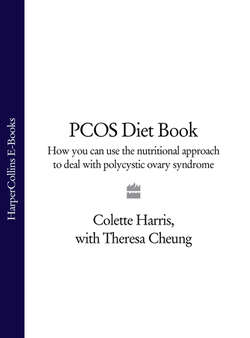Читать книгу PCOS Diet Book: How you can use the nutritional approach to deal with polycystic ovary syndrome - Theresa Cheung - Страница 67
Hormone-disturbing Chemicals
ОглавлениеEnvironmental scientist Theo Colburn first brought xenoestrogens to the public’s attention. Xenoestrogens, or endocrine-disrupting chemicals (EDC), are widely recognized as highly toxic in the smallest doses. Most importantly for women with PCOS, they are characterized as ‘hormone-disrupters’ because these petrochemicals have a molecular structure similar to the hormone oestrogen.
EDCs interfere with the natural process of your hormones, preventing them from producing the natural response in much the same way that a vehicle parked across an entrance prevents other vehicles from getting out or in. They create hormonal havoc by tricking your body into a condition known as oestrogen excess or oestrogen dominance. For women with PCOS who are often exposed to chronic levels of oestrogen without the balancing effects of progesterone anyway, oestrogen dominance can trigger a wide variety of PCOS symptoms, from irregular periods to acne, dry hair and weight gain.
In 1999, the Federal Environmental Agency in Germany published a list of pesticides to be confirmed as potential endocrine-disrupters, including pesticides used on food, wood preservatives, paints and plastics. The research necessary to confirm conclusively which chemicals are EDCs is still being carried out, however the Environmental Agency has stated that there should be action to reduce further environmental exposure while this research is on going.
There is little scientific evidence about how a poor diet and exposure to EDCs affect women with PCOS, but we know enough to suggest that exposure to potentially hormone-disrupting toxins and eating an unhealthy diet don’t benefit those who are well and healthy, let alone someone who may have a condition or potential hormonal imbalance like PCOS. ‘Humans are exposed daily to chemicals that have been shown or suggested to have hormone-disrupting properties,’ states a June 2000 Royal Society Report. ‘Despite the uncertainty, it is prudent to minimize the exposure to humans, especially pregnant women, to endocrine-disrupting chemicals.’ Taking measures to avoid hormone-disrupting chemicals in the food we eat and in our environment can help reduce the toxic load for women with PCOS, and protect us from added hormonal disturbance.
Research in 2002 from Brunel University reported on a five-year study which found that sex changes in male fish in some UK rivers were caused by synthetic oestrogens in the river water (which contained sewage waste which included the urine of women on the Pill). Dr Susan Toblin was quoted as saying, ‘One could argue we are living in a sea of oestrogen, a chemical cocktail, and therefore I think there are real reasons to be worried about health and fertility.’
